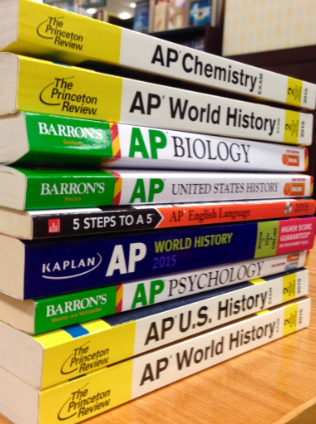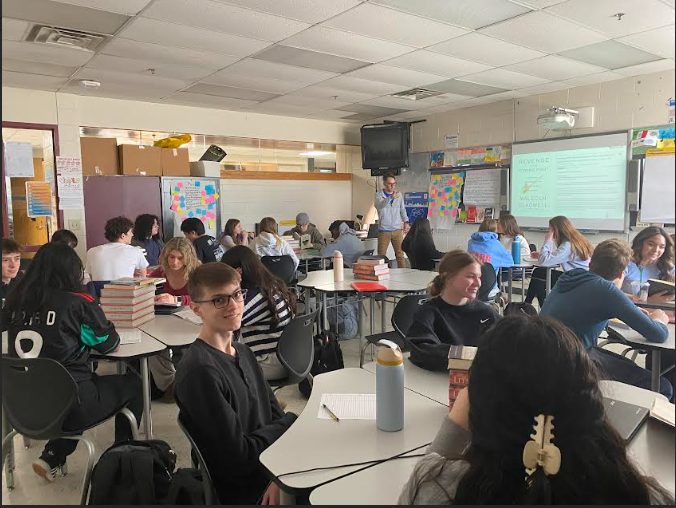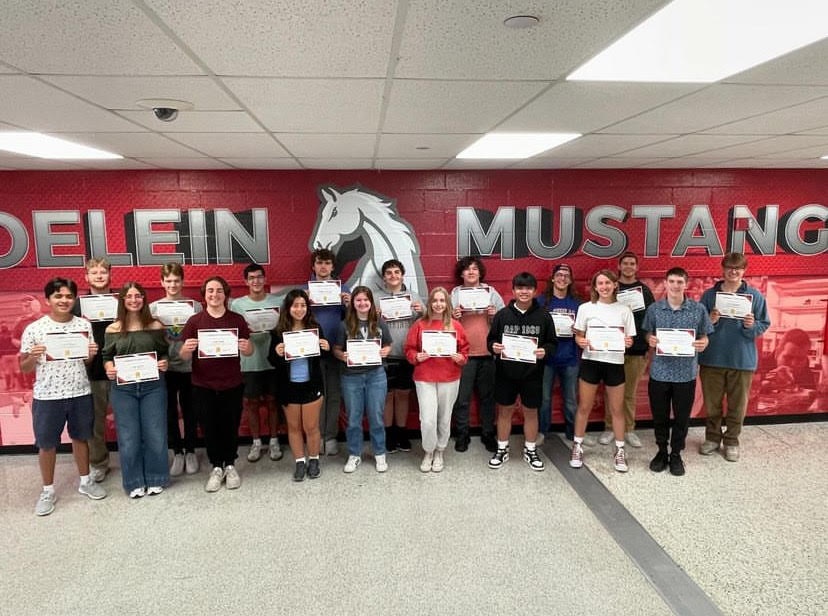Since the 1950s, education has transformed significantly, particularly with the introduction of Advanced Placement (AP) classes, which aimed to prepare high school students for college-level coursework. This initiative was crucial during the Cold War as the U.S. sought to improve educational standards in response to global competition, especially in science and technology.
Over time, the motivations for taking AP classes have shifted. Today, students and families often view AP courses as a strategic advantage in the competitive college admissions process, particularly for prestigious universities. Many students now enroll in AP classes not just for the academic challenge but to enhance their college applications, believing strong performance can make them more appealing candidates.
This shift raises concerns about whether students are adequately prepared for AP exams. While these classes are designed to be challenging and provide a deep understanding of subjects, the pressure to excel can lead to varied outcomes.
Mundelein High School offers 18 Advanced Placement (AP) courses. Since 2024, there has been an increase in the number of AP courses, the reasons for which remain unclear. A significant number of students suggest that the motivation behind this trend is the desire to enhance their college applications or to reduce the number of required college courses.
However, one must consider whether students are also pursuing these classes for the sake of the experience itself. What is the current experience like for those enrolled in these courses, and how do teachers characterize an AP class for newcomers?
Susan Theotokatos has been a teacher at Mundelein High School for 29 years, and she began teaching AP classes, particularly AP U.S. History, in 2013, marking 11 years in that role. She thinks that since that time, the College Board has been requiring less memorization and more connections between content.
“It used to be a lot of memorization, and you had to know a lot of dates, people, and places where it’s changed now. Now they’re asking students to do a lot of more thinking, critical thinking, and understanding the big picture,¨ said Theotokatos.
Conversely, this could make things simpler for some students, but what happens if others find it tough too? Everyone’s brain works differently. How can a teacher explain the same subject to a diverse group of students and ensure they all grasp it?
Theotokatos said, “ It’s just that, well, maybe their thinking just doesn’t work that way…you may not get an A or a B, but at least you feel like you’ve been exposed to it. And in the future, you’re going to be able to do better when and if you go to college.”
The readiness for AP U.S. History (APUSH) cannot be definitively determined. However, rather than succumbing to fear or questioning its value, Theotokatos offered some insightful guidance.
Theotokatos explained, “Being a solid reader is really important, because you do have to do a lot of reading, and being a decent writer also helps.”

English teacher Ryan Buck is a relatively new AP English Language and Composition teacher. Buck transitioned to AP Language just two years ago. “For the most part, students are very self-motivated, which is infectious for me. Seeing students’ success beyond just a grade is rewarding,” said Buck.
The approach taken by Buck is more hands-off, necessitating that students grasp intricate concepts from their individual viewpoints rather than conforming to the thought processes of their peers. This can be particularly challenging in Advanced Placement (AP) classes.
The fundamental principle of Buck is to embrace creativity in all endeavors. Nevertheless, he had high expectations for his AP students.
“I want them to have read more than they’ve ever read, write more than they’ve ever written, and think more critically than they ever have before about complex ideas,” Buck said.
Both Buck and Theotokatos mentioned how AP courses often involve a lot of reading and writing. It’s implied that students’ skills regarding reading and writing often translate into their success in an AP class.
Yet the experience of Stella Moon waivers, as it involved wisdom and development as her key to success in Advanced Placement classes.
Senior Stella Moon has taken numerous AP classes throughout her high school career. Currently, in her senior year, she is taking five AP classes, and her journey thus far has equipped her with valuable experience in managing high-pressure situations.
“I was a freshman [when I took] my first AP class (AP Human Geography). Ms. Theotokatos made it so much fun. I really liked her, and I actually ended up really liking the class material as well. I didn’t know much about the subject, but taking the class really helped me in other AP classes that I took in later years too,” said Moon.
Moon also said that her decision to enroll in most AP classes was primarily driven by the desire to earn college credits and increase her chances of receiving college acceptance letters. Moon also ensured that she took courses that genuinely interested her, allowing her AP experience to be less centered on academics and more aligned with her personal aspirations.
At first, Moon expressed that it was an adjustment from taking normal courses to now AP courses. Moon said, “I’ve definitely enjoyed some of them once I got the hang of the material. At first, it’s kind of hard because you’re exposed to a lot of new concepts, and you think ´What’s happening?´¨
Moon, however, did not emphasize the application of reading and writing to AP subjects. Instead she said, “Honestly, it’s just a little bit of work each day… just try to keep a balance.”
Students’ experiences in AP classes largely depend on their individual characteristics and approach to learning. Therefore, delve into books, analyze things, discuss ideas, and maybe think about wanting to seriously consider enrolling in AP classes. Not only will the classes help develop essential skills for an academic journey, but they can also provide the opportunity to earn college credit and stand out in college applications. Embracing the challenge of AP courses could be a rewarding decision that aligns with many interests and academic goals.

